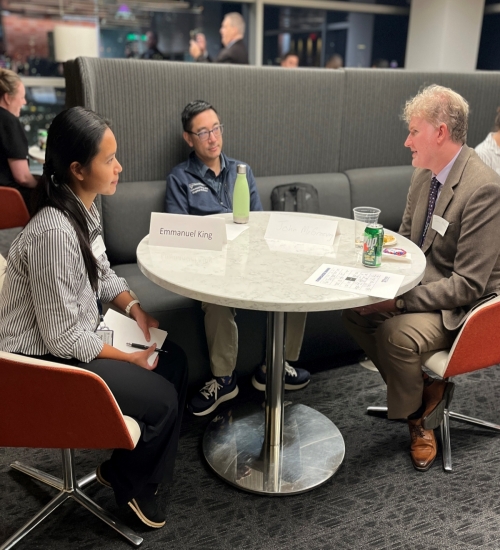Penn hospital medicine is committed to providing each and every hospitalist with the resources that they need to develop a professionally fulfilling career as an academic hospitalist. Below is a sampling of the programs that we have designed to meet this goal.
1. Junior Hospitalist Mentorship Program – All new instructors and faculty are paired with a hospitalists at the associate or full professor level during their first three months of hire. Mentor-mentee pairs meet a minimum of twice each academic year (most meet much more frequently) to discuss career goals while mentors provide guidance and facilitate connections to other faculty with similar interests at Penn.
2. Professional Development Series – Led by senior hospitalist faculty member, James Park, MD, MS, MPH, this series is designed for hospitalists by hospitalists. Instructors and faculty in their first year meet regularly to discuss practical topics to equip them for the challenges of adjusting to a new attending role. Topics include billing and documentation; teaching on the wards, how to be a good mentee, and many others. The program has expanded to span over the first 3 years at Penn, with more advanced topics each year.
3. Hospital Medicine Speed Dating – Short of wearing your best dress or suit and intending to find your soul-mate, this session mirrors a typical speed-dating event! After enjoying drinks and hors-derves, junior hospitalists rotate and spend 5 minutes sequentially meeting our mid-career and senior faculty and vice versa. Many new connections and collaborations are formed at this annual fun event!
4. Hospital Medicine Emerging Leaders Program – Mid-career faculty have unique needs. Designed for hospitalist physicians and advanced practice providers who are stepping into a new leadership role, this program draws upon the expertise of faculty and staff throughout Penn Medicine. Discussion groups are led by a senior administrator or faculty member at Penn Medicine along with our Division Chief, Ryan Greysen, MD, MHS, MA. This provides a safe space to discuss topics and skills that these new leaders can relate to and immediately apply in their roles. Conflict resolution, negotiation, and emotional intelligence, are just a few of the topics discussed.
5. Academic Professional Development Committees – Early and mid-career hospitalists have the option of forming their own personalized Academic Professional Development Committee. Specifically designed to help our academic hospitalists create the career that they desire, these committees include 3 mid-career or senior faculty members who have roles and interests similar to the mentee, including at least one faculty member who is outside of hospital medicine to ensure diverse and broad perspective. This model of team-based mentorship allows the hospitalist mentee to expand their mentorship pool and have several people making connections, advocating, and sponsoring on their behalf. Committees meet 3 times per year for one-hour over the course of a two-year time period.


